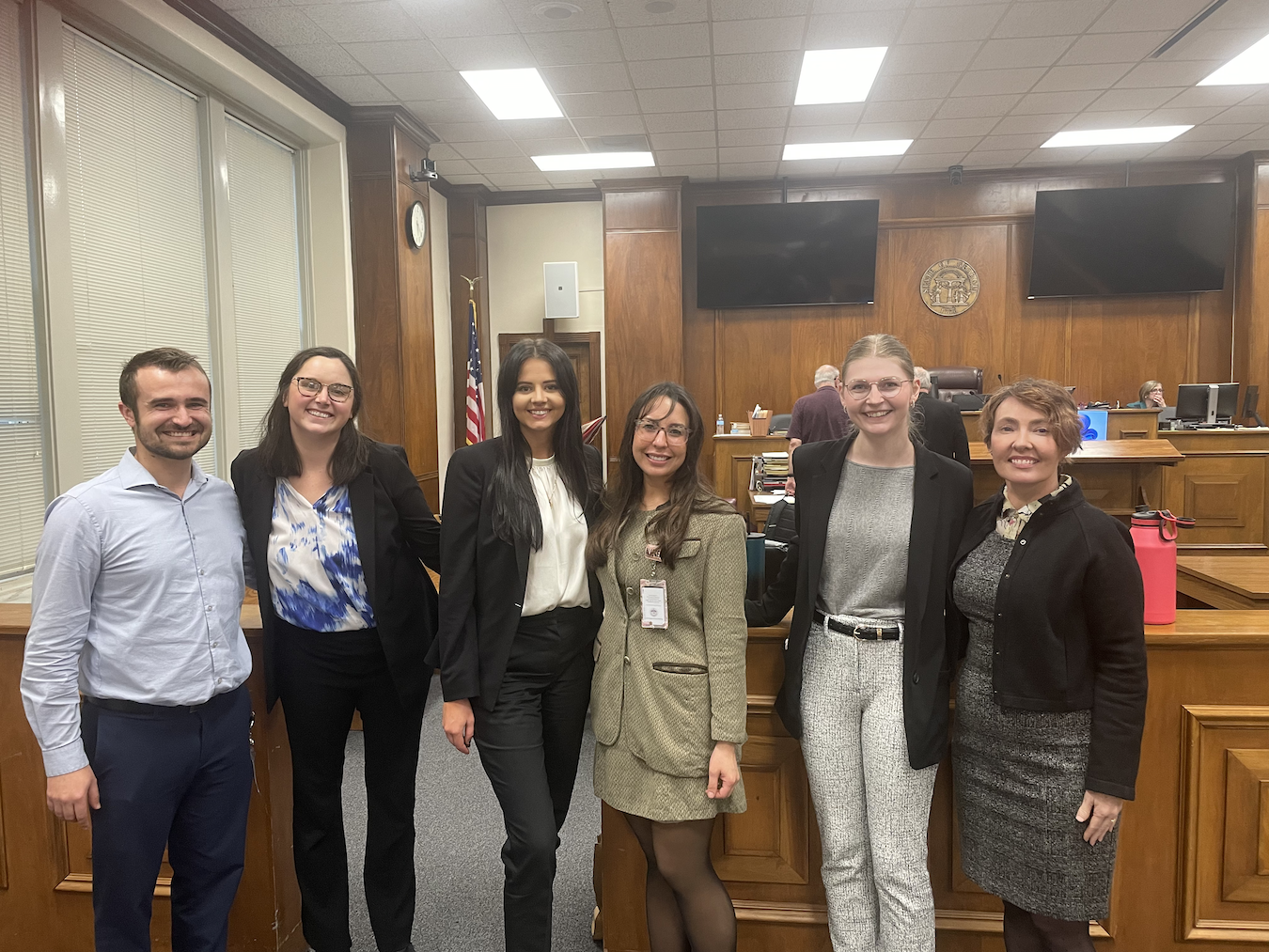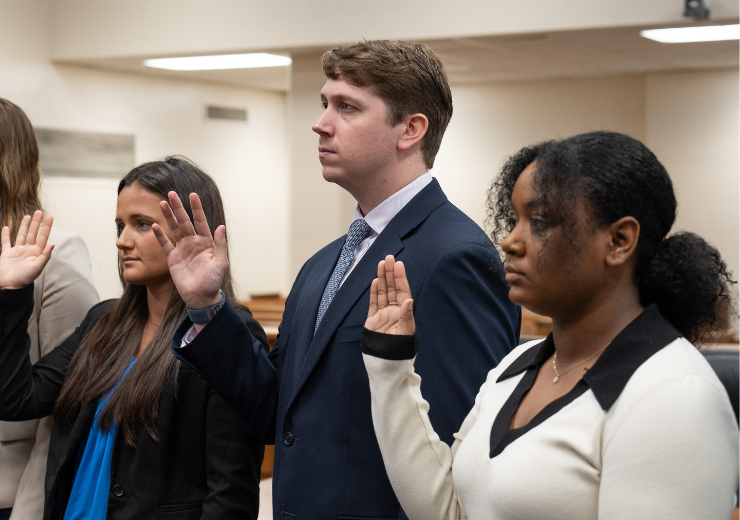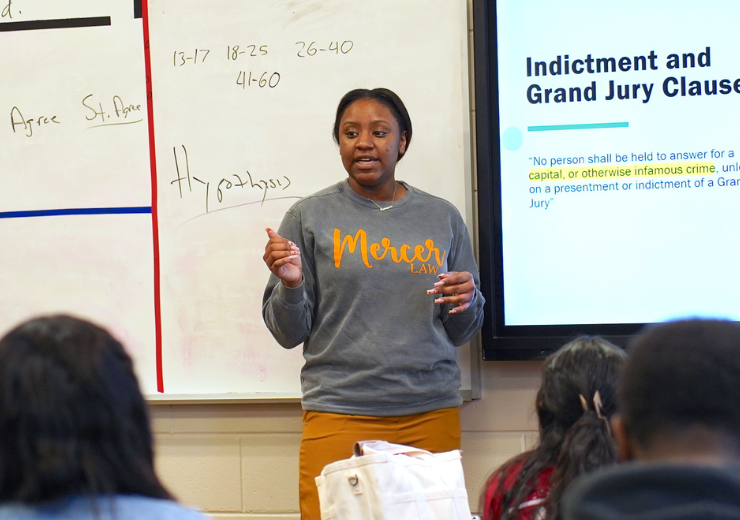Experiential Education

Mercer Law has a greater number of experiential courses than ever before in its 150-year history. There are a number of ways to earn academic credit for your experiential and public service work, and these courses fall into a few categories: externships, clinics, and field placements. Please feel free to email the individual professors teaching these courses with any questions. For programmatic questions or questions about the Public Service Certificate Program, contact Professor Bonnie Carlson (carlson_be@mercer.edu). For questions about Externship placements or the application process, please contact Julie Barnes (barnes_je@mercer.edu).

Clinics
Students have the opportunity to participate in in-house clinics taught by full-time faculty members and focused on very specific subject matter and practice areas. In-house clinics operate as their own law firms, both screening and selecting their own cases. Find clinic courses and learn more information in the link below.

Externships
Externship courses are courses in which you gain experience through work off-campus and meet for regular classes with a law school professor. Find externship courses and learn more information in the link below.

Civics Field Placement
Mercer Law's Civics Field Placement course is slightly different from these other courses in that students do not provide legal services, although they are filling important needs: education and civic engagement. In this course, students take a seminar in constitutional law in the fall semester and in the spring semester work within the local public schools to assist with civics education.

Simulation Courses
Simulation courses are absolutely essential in helping students understand foundation and practical skills, but do not directly include a service component. These course include (but are not limited to): Trial Advocacy, Introduction to Client Counseling, Client Counseling II, Introduction to Alternative Dispute Resolution, and others. See the course catalog for other simulation courses.